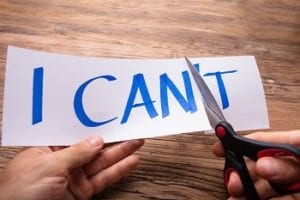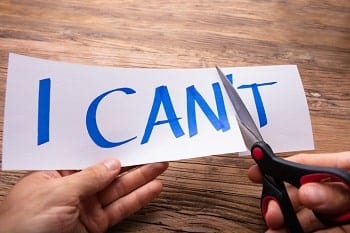Heroin, morphine, oxycodone, hydrocodone, methadone, and codeine are common opioids used to treat physical pain. So what is an opioid? Opioids are known to be fantastic ways to relieve pain related to cancer, surgery, and broken bones however today, opioids are even more potent in reducing emotional pain, hence why the addiction rates for this class of drugs is so high. Addiction commonly starts with prescription painkillers then eventually the individual moves on to harder more potent opioids such as heroin or fentanyl, after the prescription painkillers run out. Supporting a loved through an opioid abuse disorder can be challenging and lonely. Some of the best ways to be supportive involve educating yourself, practicing empathy, and learning what not to do.
Enabling vs. Empowering
 Enabling refers to the process by which loved ones “enable” an addicted individual to continue in their addiction, by failing to set appropriate boundaries, failing to recognize the problem, providing money and making excuses for their behavior. Enablers knowingly or unknowingly aid and assist the person with substance use disorder by saving them from the consequences of their unacceptable behavior. They may make excuses for them if they miss a family dinner, skip out on work, show poor performance in school, start fights, or get into financial hardship. As a result, the addicted individual continues with dangerous behavior escaping the consequences at the expense of their loved one. Often loved ones will enable a person with substance use disorder because they think it will help, they believe they will get better, they do not want to see them suffer or simply because they do not know what else to do. Enablers are often co-dependent with the addict, and often, they feel desperate to hang onto to their loved one, regardless of how bad their opioid addiction is. Examples of enabling behavior include the following:
Enabling refers to the process by which loved ones “enable” an addicted individual to continue in their addiction, by failing to set appropriate boundaries, failing to recognize the problem, providing money and making excuses for their behavior. Enablers knowingly or unknowingly aid and assist the person with substance use disorder by saving them from the consequences of their unacceptable behavior. They may make excuses for them if they miss a family dinner, skip out on work, show poor performance in school, start fights, or get into financial hardship. As a result, the addicted individual continues with dangerous behavior escaping the consequences at the expense of their loved one. Often loved ones will enable a person with substance use disorder because they think it will help, they believe they will get better, they do not want to see them suffer or simply because they do not know what else to do. Enablers are often co-dependent with the addict, and often, they feel desperate to hang onto to their loved one, regardless of how bad their opioid addiction is. Examples of enabling behavior include the following:
Paying the rent of someone who spent all his or her money on drugs
Lying about why someone is not at work or school
Apologizing to people on behalf of a person with substance use disorder
Bailing a person with substance use disorder out of jail repeatedly when addiction lands him or her in trouble
Giving an unrepentant person with substance use disorder shelter for fear he or she will end up on the street
Empowerment requires taking care of yourself and setting boundaries for your loved one who has an opioid addiction. When you are empowered in your personal life, you often will feel empowered in other aspects of your life and as a result, can allow others to live a better life. Empowering a person with substance use disorder means that you set strict boundaries, do not make excuses for them, can see through their manipulations, and help them make their own confident and informed decisions healthily. You lead by example and stand your ground with confidence and empathy.
Ways to empower your loved one through their opioid addiction
- Speak and act with honor and honesty. Everybody recognizes integrity.
- Smile, it’s contagious.
- Be sincere. It makes others feel appreciated.
- Tell your loved ones that you indeed like them. They’ll respect themselves more.
- Encourage open communication. Show how to communicate thoughts and emotions.
- Recognize self-improvement. Write goals for it and reward it.
- Instill core values. Recognizing right from wrong gives purpose and direction.
- Require accountability. Nobody is accountable if failure has no consequences.
- Permit independence. It’s a great test of self-respect.
- Respect some failures, but not all. You stumbled a few times too.
